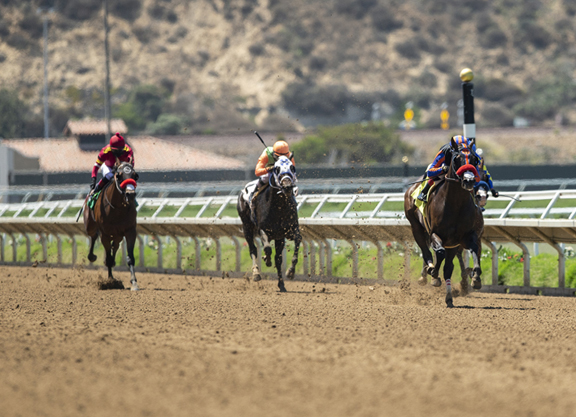The International Forum for the Aftercare of Racehorses (IFAR) continued its 2021 virtual series Tuesday with presentations on aftercare perspectives from racing administrators and regulators representing Australia, New Zealand, the U.K.. and the U.S. This session is the second in a series of four webinars that comprise the 2021 IFAR Conference.
Tuesday's session was moderated by Australia-based broadcaster Caroline Searcy, and the panelist group consisted of Aidan Butler, chief operating officer, 1/ST Racing and president, 1/ST Content (U.S.); Martin Burns, general manager, Welfare & Sustainability, New Zealand Thoroughbred Racing; Simon Cooper, director, Weatherbys, General Stud Book (U.K.); and Dr. Anna Smet, animal welfare manager, Racing and Wagering Western Australia (RWWA).
All four speakers discussed the traceability measures that their organizations use or have developed to keep track of racehorses throughout their lives. Additionally, they suggested that having a dedicated individual or resource to contact through an administrative or regulatory body was an instrumental part of driving change toward prioritizing aftercare.
Butler talked about the efforts of 1/ST Racing to track horses at their racing facilities and to coordinate with accredited aftercare organizations to place horses that need homes.
Burns discussed the aftercare landscape in New Zealand and the increased investment in traceability measures in that jurisdiction, where the “culture of compliance” on the importance of submitting this data is developing. He also emphasized how effective aftercare practices, including stories of post-racing successes, are part of the strategy of repelling anti-racing sentiment.
Cooper lauded the benefits of the Weatherbys e-passport over paper documentation, which he described as the key barrier to effective traceability. The digital passport enables immediate documentation of major events in a horse's life, from an owner change and traveling to notification of retirement and vaccinations. Cooper believes that documentation of these events in a horse's life should be mandatory and be submitted to a horse's records within a certain time frame of their occurrence.
Smet described the racehorse welfare plan established by RWWA in 2019, which has resulted in the creation of the Off-the-Track WA Retraining Program and a digital passport to track horses. The goal of the retraining program is to complement established pathways for rehoming post-racing and to provide an alternate option for horses that are not selected by retrainers or sold/gifted easily, such as those in remote locations.
The third session of the 2021 IFAR is scheduled for Apr. 20 and titled, “Global Insights on Aftercare (Aftercare Providers, Equine Charities).”
Not a subscriber? Click here to sign up for the daily PDF or alerts.






